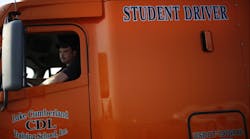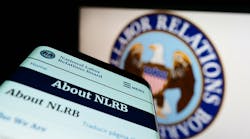Over recent months, members of the International Foodservice Distributors Association (IFDA) have been sharing ways to build a supply of good candidates through a series of articles from the Association. They've also discussed creative training programs to help candidates succeed. Here are some takeaways:
Look to your Warehouse
Ben E. Keith Foods DFW division had a driver crisis in May 2013 when a number of drivers were hired away. Candidates for filling the positions were unsatisfactory.
"We were getting leftovers, people who were not aware that the job is to service customers," says David Castillo, manager of administrative services at the branch. Castillo turned to the Safety Department, and they devised a new training plan that would ensure that drivers learned the ‘Ben E. Keith Way.’"
The revised strategy was twofold:
- Start growing drivers within the company from warehouse employees who wanted a change,
- Work to attract driver applicants from the outside who had no bad habits.
The company also developed a detailed Four Phase Training Program that proved so successful that BEK plans to expand the program to its other divisions.
"There is no magic bullet for driver training," says Dr. Elliott Stephenson, v.p. of human resources at Ben E. Keith's headquarters. "It's a constant process of tweaking to optimize the outcome, but this approach at DFW is really working. All of our divisions have training, but DFW is doing the best job of sharing the wisdom."
Develop a Driver Institute
Maines Paper & Food Service operates a commercial driver’s license school as well as a customer-service driver training program. The Driver Institute is a separate division of Maines and is open to anyone who wishes to earn their CDL certification. Some graduates go on to work for Maines, while some move on to other companies or other industries.
Stephanie Wyatt, v.p. of human resources for Maines, explains that the Institute is a good pipeline for hiring delivery drivers. "We have a rigorous hiring process and we have high standards for the individuals we bring on board," she says. Once hired, drivers go through six weeks of further training to educate them in the Maines way of doing things. That includes spending time in the office and time on the road with a driver trainer, says Wyatt.
The trainers are experienced drivers who not only do their job well, but want to transfer their knowledge to new hires. They also help if an existing driver needs remedial help. The trainers also get training so they can effectively train others. They are not only excellent drivers that know all of Maines' processes and procedures, says Wyatt, but are also taught how to transfer that knowledge.
These cases will be explored in more detail at IFDA’s Distribution Solutions Conference, October 21-23 at the Indiana Convention Center in Indianapolis.





